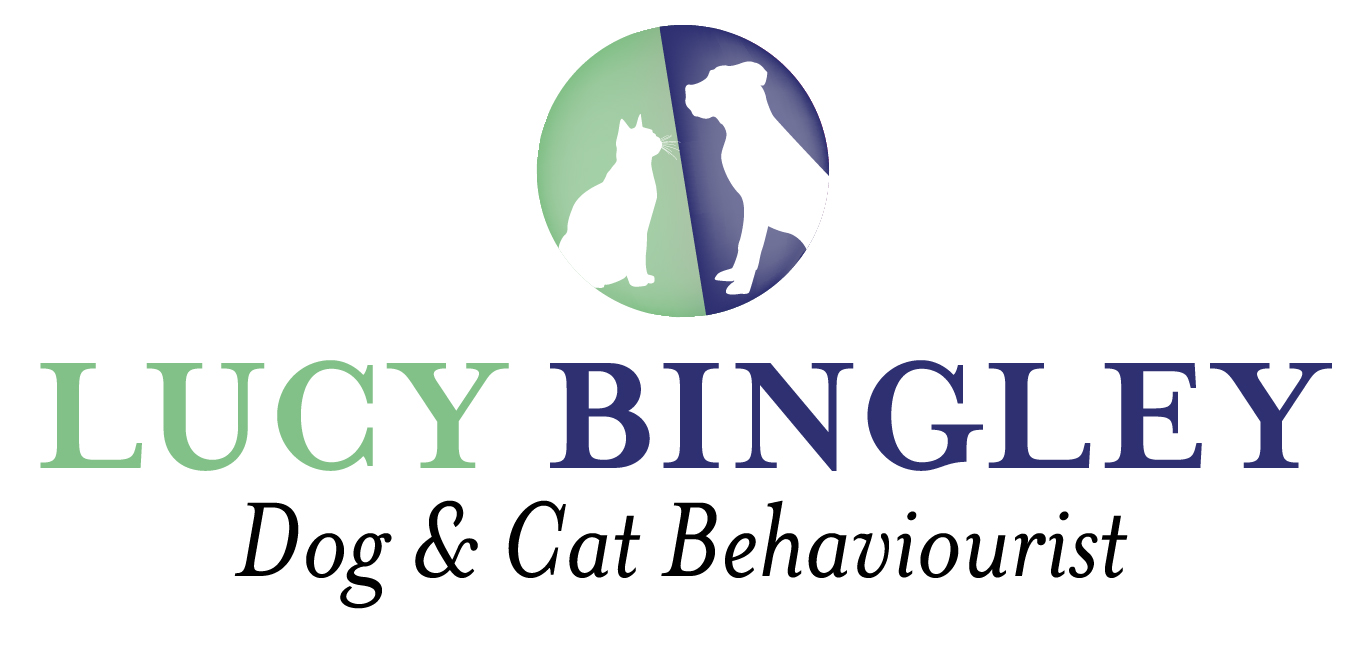|
Dog Behaviour and Potential Problems
|
|

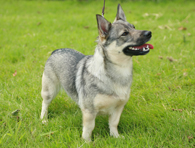
|
The most common behaviour problems in dogs referred to professional
behaviour counsellors
[1] are:
-
Aggression
-
House soiling
-
Destructive behaviour
(chewing, scratching or digging)
-
Lack of owner control
-
Barking
-
Fearful behaviour and phobias
-
Excessively submissive
behaviour (rolling over, urination, crawling, "grinning")
-
Compulsive behaviour
Owners are also often distressed by other behaviour such as jumping
up, begging for food, jumping on furniture, over-protectiveness and
escaping
[2],
but often feel that this sort of "bad" behaviour is not worth
bothering the vet with. However, any behaviour problem that causes
inconvenience, concern or embarrassment to the owner can be defined
as a behaviour problem, and as these issues can also be a symptom of
an underlying psychological problem, they should be taken seriously
for the dog's sake.
|
Causes of Behaviour Problems in Dogs
Behaviour problems are frequently the result of a dog's experience
in early life. Inadequate socialisation
and lack of exposure to experiences as a puppy means that a dog will
have difficulties forming normal relationships later in life, and
may develop fear or aggression problems.
Because dogs are social animals, they naturally form close bonds
with the other animals and people with whom they live. Disruption of
these bonds due to repeated re-homing, upheaval or death of a family
member can result in attachment disorders such as separation anxiety
or over protectiveness.
Dogs have a complex communication system, involving posture,
facial expression, vocal sounds and scent. In some breeds, the dogs'
physical characteristics prevent them from clearly signalling to
other dogs, which can give rise to communication problems, and may
result in fear / aggression towards other dogs. Similar problems
arise if signals such as growling are punished by owners, as this
encourages the dog to skip this warning stage in its aggressive
display.
Dogs learn very quickly, so a single traumatic incident can trigger
fear or phobia, which manifest as anxiety, attempts to escape or
aggression. Seemingly random fears can develop if a dog associates a
frightening event with a sound, object or person that happened to be
present at the same time.
In some cases, the natural behaviour of the dog becomes a problem.
Some breeds are predisposed to exhibit particular behaviour traits,
such as territorial behaviour or chasing. This can give rise to
problems if the dog displays the behaviour inappropriately.
|
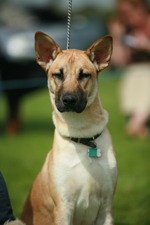
 |
|
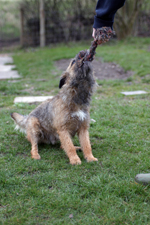
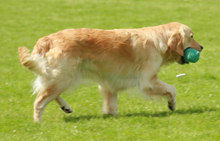 |
Treating Dog Behaviour Problems
I treat behaviour problems in dogs using reward-based methods; I do
not use any form of punishment. Punishment is never appropriate, as
it may cause the dog anxiety or fear, which inhibit learning and
disrupt therapy, and it can exacerbate the problem - in aggression
cases punishment is highly dangerous.
I carry out a detailed consultation in order to accurately diagnose
the underlying causes of the behaviour. Using proven behaviour
modification techniques, I work with owners to develop a treatment
plan that addresses the causes rather than the symptoms; the
behaviour improves as a result.
Many owners are concerned about the effect behaviour therapy will
have on their relationship with their dog. Far from damaging the
bond, owners find that carrying out a treatment programme promotes a
strong, healthy relationship.
If your dog is exhibiting any behaviour that gives you cause for
concern,
please see your vet to rule out medical causes and to request a
behavioural
referral, then
contact me to make an appointment.
|
| |
|
Preventing Behaviour Problems in Dogs
In dogs, the socialisation
period begins at about two weeks, when puppies' eyes and ears begin
to open.
Between four and twelve weeks is the optimum age for puppies to
learn how to interact with other animals including people. Exposure
to a diverse range of stimuli at this time will encourage the puppy
to be confident and investigate novel objects later on, and helps to
prevent fearful behaviour.
My
puppy classes provide puppies with the opportunity to meet other
dogs, play in a safe environment and encounter a variety of new and
interesting objects. I also provide some basic training and
behaviour advice.
While the socialisation period is the optimum time for introducing a
puppy to the world, learning continues throughout life, so even a
poorly socialised dog can be helped with behaviour counselling. It
is never too late to help your pet, and I'm always happy to hear
from you and to talk about any concerns you have, so please don't
hesitate to
contact me. |

 |
|
[1] Campbell WE 1986
The effects of social environment on canine behaviour.
Modern Veterinary Practice February:113-115
[2]
Landsberg GM 1991 The distribution of canine behaviour cases at
three behaviour referral practices. Veterinary Medicine
October:1011
|
|
